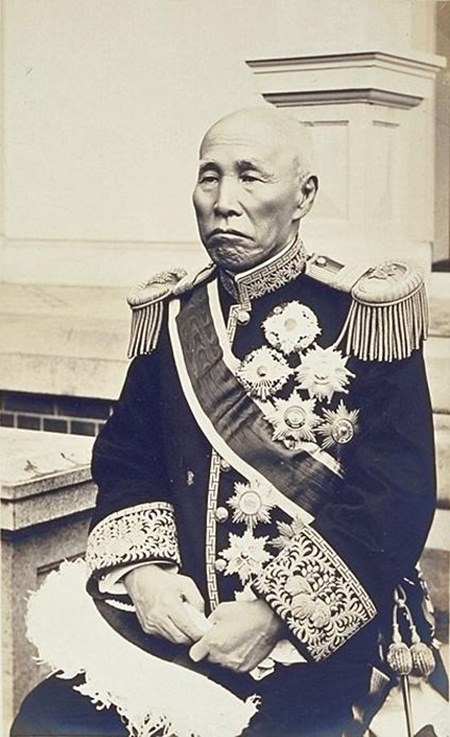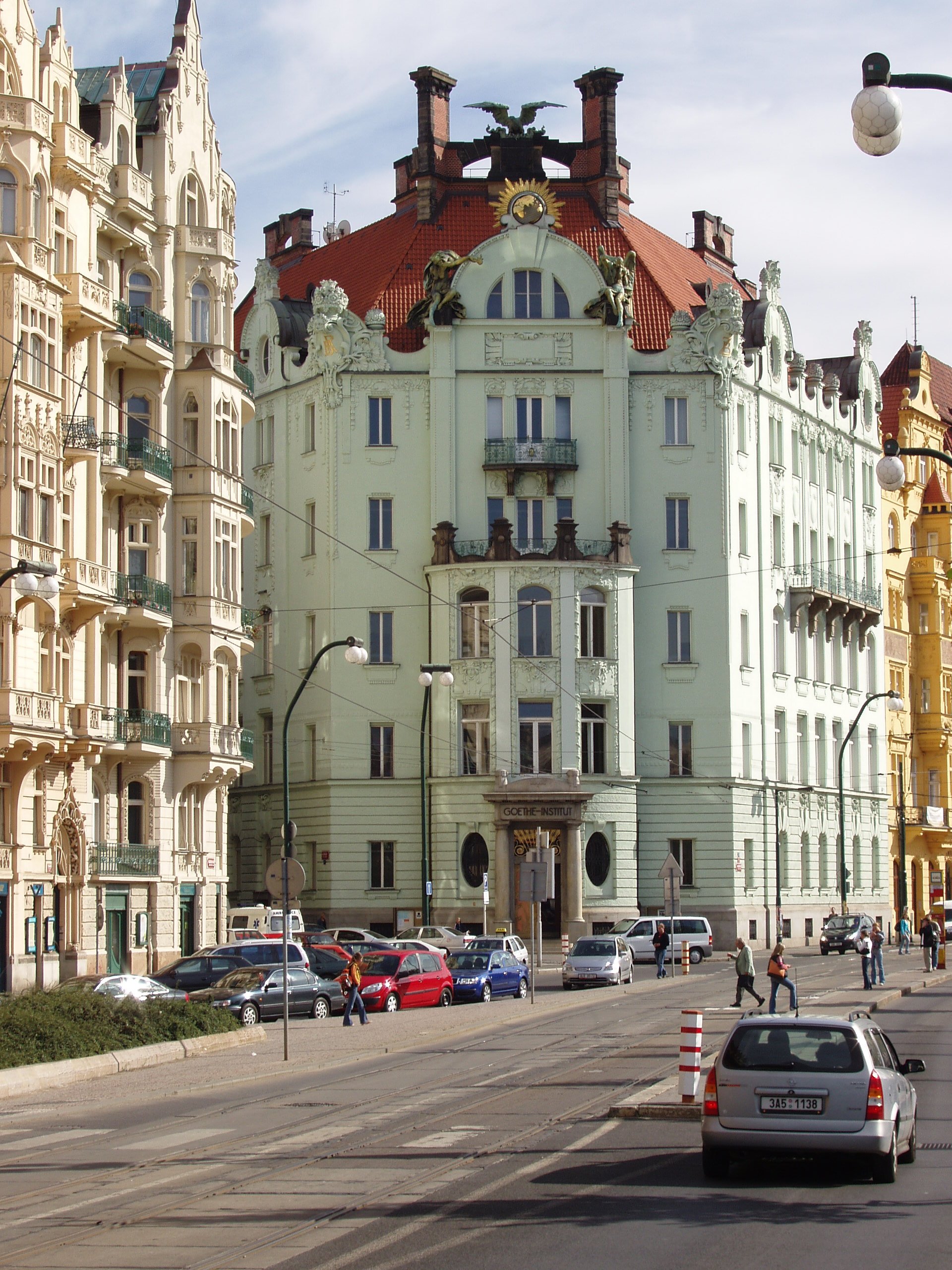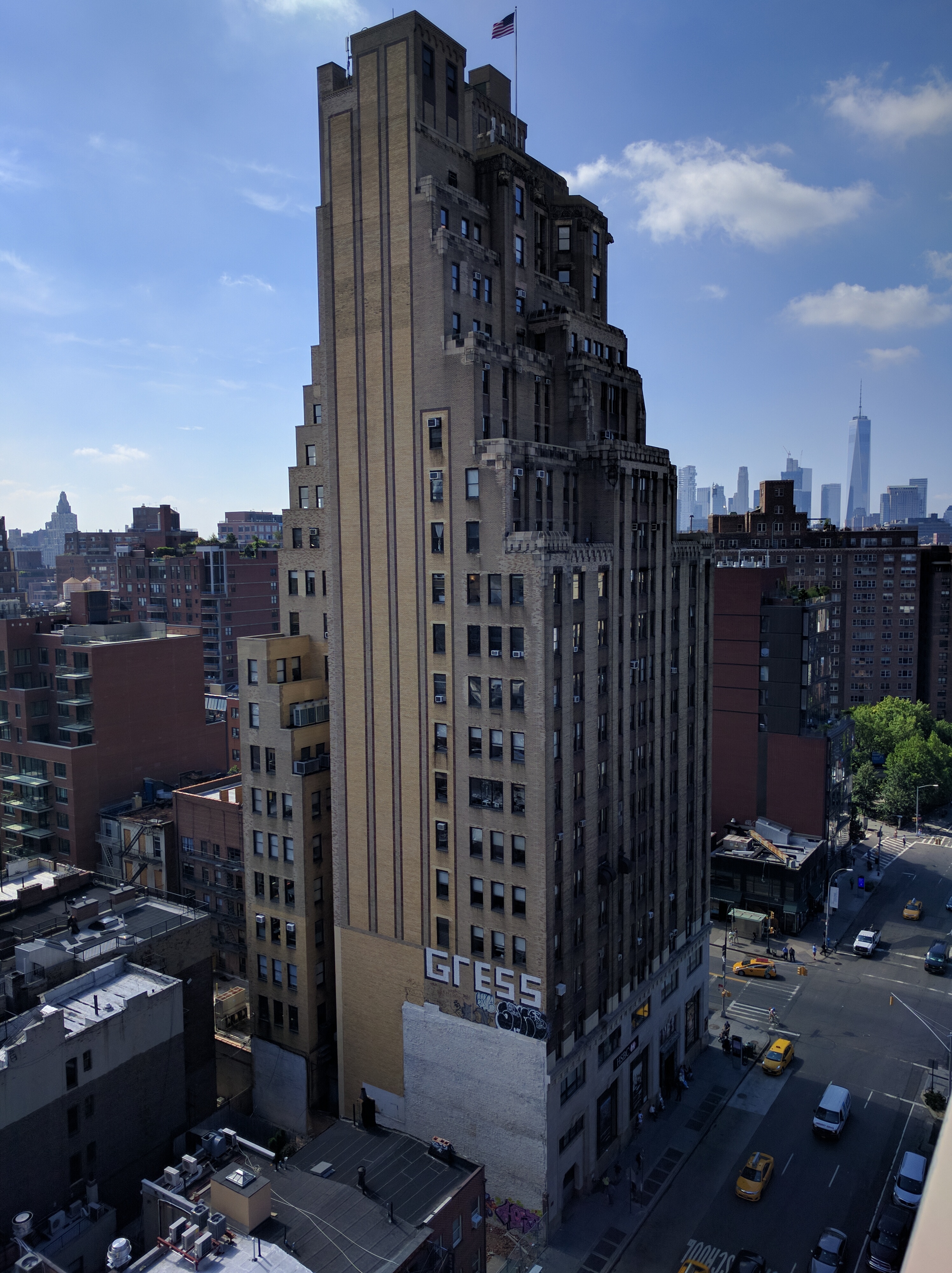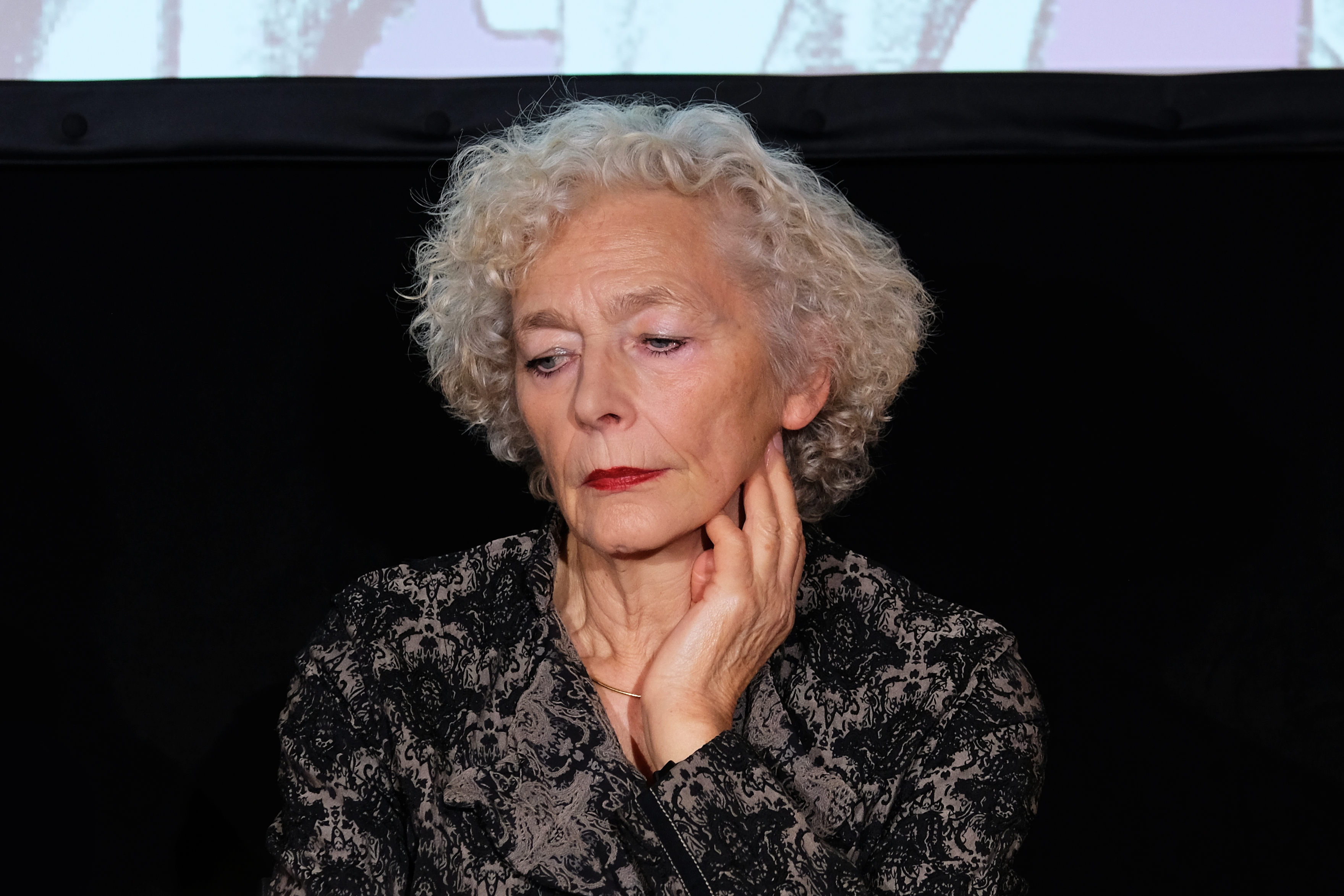|
Yōko Tawada
Yōko Tawada (多和田葉子 ''Tawada Yōko'', born March 23, 1960) is a Japanese writer currently living in Berlin, Germany. She writes in both Japanese and German. She is a former writer-in-residence at MIT and Stanford University. Tawada has won numerous literary awards, including the Akutagawa Prize, the Tanizaki Prize, the Noma Literary Prize, the Izumi Kyōka Prize for Literature, the Gunzo Prize for New Writers, the Goethe Medal, the Kleist Prize, and a National Book Award. Early life and education Tawada was born in Nakano, Tokyo. Her father was a translator and bookseller. She attended Tokyo Metropolitan Tachikawa High School. In 1979, at the age of 19, Tawada took the Trans-Siberian Railway to visit Germany. She received her undergraduate education at Waseda University in 1982 with a major in Russian literature, and upon graduation moved to Hamburg, Germany, where she started working with one of her father's business partners in a book distribution business. She le ... [...More Info...] [...Related Items...] OR: [Wikipedia] [Google] [Baidu] |
Waseda University
Waseda University (Japanese: ), abbreviated as or , is a private university, private research university in Shinjuku, Tokyo. Founded in 1882 as the Tōkyō Professional School by Ōkuma Shigenobu, the fifth Prime Minister of Japan, prime minister of Japan, the school was formally renamed Waseda University in 1902. Waseda is organized into 36 departments: 13 undergraduate schools and 23 graduate schools. As of 2023, there are 38,776 undergraduate students and 8,490 graduate students. In addition to a central campus in Shinjuku (Waseda Campus and Nishiwaseda Campus), the university operates campuses in Chūō, Tokyo, Chūō, Nishitōkyō, Tokyo, Nishitōkyō, Tokorozawa, Saitama, Tokorozawa, Honjō, Saitama, Honjō, and Kitakyūshū, Fukuoka, Kitakyūshū. Waseda also operates 21 research institutes at its main Shinjuku campus. The university is selected as one of the Top Type (Type A) universities under Ministry of Education, Culture, Sports, Science and Technology, MEXT's Top Gl ... [...More Info...] [...Related Items...] OR: [Wikipedia] [Google] [Baidu] |
Trans-Siberian Railway
The Trans-Siberian Railway, historically known as the Great Siberian Route and often shortened to Transsib, is a large railway system that connects European Russia to the Russian Far East. Spanning a length of over , it is the longest railway line in the world. It runs from the city of Moscow in the west to the city of Vladivostok in the east. During the period of the Russian Empire, government ministers—personally appointed by Alexander III and his son Nicholas II—supervised the building of the railway network between 1891 and 1916. Even before its completion, the line attracted travelers who documented their experiences. Since 1916, the Trans-Siberian Railway has directly connected Moscow with Vladivostok. , expansion projects remain underway, with connections being built to Russia's neighbors Mongolia, China, and North Korea. Additionally, there have been proposals and talks to expand the network to Tokyo, Japan, with new bridges or tunnels that would connect the main ... [...More Info...] [...Related Items...] OR: [Wikipedia] [Google] [Baidu] |
Knut (polar Bear)
Knut (; 5 December 2006 – 19 March 2011) was an orphaned polar bear born in Captivity (animal), captivity at the Berlin Zoological Garden. Rejected by his mother at birth, he was raised by zookeepers. He was the first polar bear cub to survive past infancy at the Berlin Zoo in more than 30 years. At one time the subject of international controversy, he became a tourist attraction and commercial success. After the German tabloid newspaper ''Bild-Zeitung, Bild'' ran a quote from an animal rights Activism, activist that decried keeping the cub in captivity, fans worldwide rallied in support of his being hand-raised by humans. Children protested outside the zoo, and e-mails and letters expressing sympathy for the cub's life were sent from around the world. Knut became the center of a mass media phenomenon dubbed "Knutmania" that spanned the globe and spawned toys, media specials, DVDs, and books. Because of this, the cub was largely responsible for a significant increase in rev ... [...More Info...] [...Related Items...] OR: [Wikipedia] [Google] [Baidu] |
Goethe-Institut
The Goethe-Institut (; GI, ''Goethe Institute'') is a Nonprofit organization, nonprofit German culture, cultural organization operational worldwide with more than 150 cultural centres, promoting the study of the German language abroad and encouraging international cultural exchange and relations. Around 246,000 people have studied German in these courses per year. It is named after German poet and statesman Johann Wolfgang von Goethe. As a registered association, the Goethe-Institut e.V. is politically independent. The Goethe-Institut fosters knowledge about Germany by providing information on German culture, society and socio-political affairs. This includes the promotion of German films, music, theatre, and literature. Goethe cultural societies, reading rooms, and examination and language centres have played an important role in the cultural and educational activities of Germany in many countries for more than 60 years. Partners of the institute and its centres are public ... [...More Info...] [...Related Items...] OR: [Wikipedia] [Google] [Baidu] |
Susan Bernofsky
Susan Bernofsky (born 1966) is an American translator of German-language literature and author. Life and work Susan Bernofsky is best known for bringing the Swiss writer Robert Walser to the attention of the English-speaking world (in a "second wave" after the work of Christopher Middleton), translating many of his books and writing his biography. She has also translated several books by Jenny Erpenbeck and Yoko Tawada. She holds an MFA in Fiction from Washington University and a PhD in Comparative Literature from Princeton University. Her prizes for translation include the 2006 Helen and Kurt Wolff Translation Prize, the 2012 Calw Hermann Hesse Prize, the 2015 Oxford-Weidenfeld Translation Prize, the 2015 Independent Foreign Fiction Prize, and the 2015 Schlegel-Tieck Prize. She was also selected for a Guggenheim Fellowship in 2014. In 2017, she won the Warwick Prize for Women in Translation for her translation of ''Memoirs of a Polar Bear'' by Yoko Tawada. In 2018 s ... [...More Info...] [...Related Items...] OR: [Wikipedia] [Google] [Baidu] |
Massachusetts Institute Of Technology
The Massachusetts Institute of Technology (MIT) is a Private university, private research university in Cambridge, Massachusetts, United States. Established in 1861, MIT has played a significant role in the development of many areas of modern technology and science. In response to the increasing Technological and industrial history of the United States, industrialization of the United States, William Barton Rogers organized a school in Boston to create "useful knowledge." Initially funded by a land-grant universities, federal land grant, the institute adopted a Polytechnic, polytechnic model that stressed laboratory instruction in applied science and engineering. MIT moved from Boston to Cambridge in 1916 and grew rapidly through collaboration with private industry, military branches, and new federal basic research agencies, the formation of which was influenced by MIT faculty like Vannevar Bush. In the late twentieth century, MIT became a leading center for research in compu ... [...More Info...] [...Related Items...] OR: [Wikipedia] [Google] [Baidu] |
Villa Aurora
The Villa Aurora, 520 Paseo Miramar, Pacific Palisades, Los Angeles, has been an artists' residence since 1995. It is the former home of the German Jewish author Lion Feuchtwanger and his wife Marta. The Feuchtwangers bought this Spanish-style mansion in 1943. The house was a popular meeting place for artists and the community of German-speaking émigrés. Lion Feuchtwanger wrote six of his historical novels in this house: ''The Day Will Come'', ''Proud Destiny'', ''The Jewess of Toledo'', ''Tis folly to be wise'', ''Jephthah and his Daughter'', and ''This is the Hour''. Today, the villa is operated by two institutions: the Villa Aurora & Thomas Mann House e.V., situated in Berlin, and the Friends of Villa Aurora Inc. in Los Angeles. It offers fellowships for artists-in-residence to stay at the villa, for German-based writers, visual artists, composers, and filmmakers. Construction Villa Aurora was part of a building project initiated by Arthur Weber and George Ley in coope ... [...More Info...] [...Related Items...] OR: [Wikipedia] [Google] [Baidu] |
Adelbert Von Chamisso Prize
The Adelbert von Chamisso Prize () was a German literary award established in 1985, given to a work whose author's mother tongue is not German, as was the case for Adelbert von Chamisso. It was offered by the Robert Bosch Stiftung. In addition to the main prize with a prize money of €15,000, one or more promotional prizes ("Förderpreise") with a prize money of €7,000 and sometimes an honorary award ("Ehrengabe") were given. The prize was created by Harald Weinrich. In 2016, the Robert Bosch Stiftung announced that the prize would be discontinued after the final 2017 award, saying that it had now fulfilled its original objective. Winners The list shows the main prize, the promotional prizes ("PP"), and the honorary awards. * 1985 – Aras Ören; PP: Rafik Schami * 1986 – Ota Filip * 1987 – Franco Biondi and Gino Chiellino * 1988 – Elazar Benyoëtz; PP: Zafer Şenocak * 1989 – Yüksel Pazarkaya; PP: Zehra Çırak * 1990 – Cyrus Atabay; PP: Alev Tekinay ... [...More Info...] [...Related Items...] OR: [Wikipedia] [Google] [Baidu] |
Margaret Mitsutani
Margaret is a feminine given name, which means "pearl". It is of Latin origin, via Ancient Greek and ultimately from Old Iranian. It has been an English name since the 11th century, and remained popular throughout the Middle Ages. It became less popular between the 16th and 18th century, but became more common again after this period, becoming the second-most popular female name in the United States in 1903. Since this time, it has become less common, but was still the ninth-most common name for women of all ages in the United States as of the 1990 census. Margaret has many diminutive forms in many languages, including Daisy, Greta, Gretchen, Maggie, Madge, Maisie, Marge, Margie, Margo, Margot, Marnie, Meg, Megan, Molly, Peggy, and Rita. Etymology Margaret is derived via French () and Latin () from (), via Persian ''murwārīd'', meaning "pearl". Margarita (given name) traces the etymology further as مروارید, ''morvārīd'' in modern Persian, derived from ... [...More Info...] [...Related Items...] OR: [Wikipedia] [Google] [Baidu] |
Bilingualism
Multilingualism is the use of more than one language, either by an individual speaker or by a group of speakers. When the languages are just two, it is usually called bilingualism. It is believed that multilingual speakers outnumber monolingual speakers in the world's population. More than half of all Europeans claim to speak at least one language other than their mother tongue; but many read and write in one language. Being multilingual is advantageous for people wanting to participate in trade, globalization and cultural openness. Owing to the ease of access to information facilitated by the Internet, individuals' exposure to multiple languages has become increasingly possible. People who speak several languages are also called '' polyglots''. Multilingual speakers have acquired and maintained at least one language during childhood, the so-called first language (L1). The first language (sometimes also referred to as the mother tongue) is usually acquired without formal ... [...More Info...] [...Related Items...] OR: [Wikipedia] [Google] [Baidu] |
New Directions Publishing
New Directions Publishing Corp. is an independent book publishing company that was founded in 1936 by James Laughlin (1914–1997) and incorporated in 1964. Its offices are located at 80 Eighth Avenue in New York City. History New Directions was born in 1936 of Ezra Pound's advice to the young James Laughlin, then a Harvard University sophomore, to "do something useful" after finishing his studies at Harvard. The first projects to come out of New Directions were anthologies of new writing, each titled ''New Directions in Poetry and Prose'' (until 1966's ''NDPP 19''). Early writers incorporated in these anthologies include Dylan Thomas, Marianne Moore, Wallace Stevens, Thomas Merton, Denise Levertov, James Agee, and Lawrence Ferlinghetti. New Directions later broadened their focus to include writing of all genres, representing not only American writing, but also a considerable amount of literature in translation from modernist authors around the world. New Directions also p ... [...More Info...] [...Related Items...] OR: [Wikipedia] [Google] [Baidu] |
Sigrid Weigel
Sigrid Weigel (born March 25, 1950, Hamburg) is a German scholar of literary studies, critical theory, a specialist of cross-disciplinary research, and a leading scholar of Walter Benjamin, Aby Warburg, and the cultural science (Kulturwissenschaft) around 1900. She held professorships at Hamburg, Zürich, and Berlin and established the internationally noted Advanced Studies “Center for Literary and Cultural Research” (ZfL, Zentrum für Literatur- und Kulturforschung) in Berlin. In 2016, she received the renowned Aby Warburg Prize of the City of Hamburg. Career Weigel received her Ph.D. in 1977 from University of Hamburg and her habilitation in 1986 from Marburg University. Since 1978 she taught Literary Studies at Hamburg University, where she was appointed professor in 1984. As member of the director's board of the Institute for Advanced Study in the Humanities (KWI) Essen from 1990 to 1993 she conducted interdisciplinary fellow groups on ‘memory research’ and 'topography ... [...More Info...] [...Related Items...] OR: [Wikipedia] [Google] [Baidu] |







